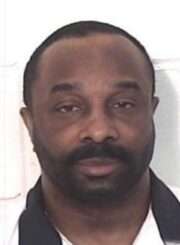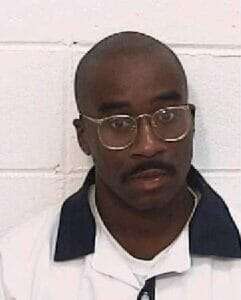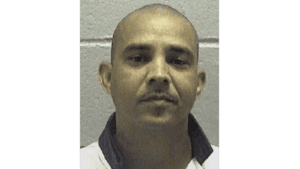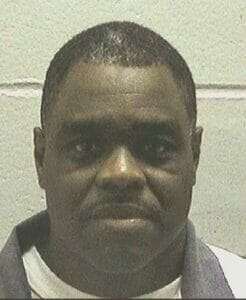
Carlton Gary was a serial killer who would be executed by the State of Georgia for three murders. According to court documents Carlton Gary would murder three elderly woman over a two year period. Carlton Gary would be executed by lethal injection on March 15, 2018
Carlton Gary More News
Despite his steadfast insistence that he was not the “Stocking Strangler,” serial killer Carlton Gary was executed Thursday night, 40 years after he raped and killed at least three elderly women in the Wynnton neighborhood of Columbus.
Gary was pronounced dead at 10:33 p.m., three and a half hours after he was initially scheduled to die by lethal injection.
Gary was convicted of murdering three women — Florence Scheible, 89; Martha Thurmond, 70; and Kathleen Woodruff, 74 — by strangling them with their own stockings. But he also was blamed for four other rapes and strangulations of older women during a seven-month period in 1977 and 1978. He later was linked to similar murders that occurred in New York in the early 1970s, before he moved back to his hometown of Columbus.
Gary, 67, always admitted he was at the homes of the murdered women, but he was adamant that someone else did the killing.
Gary’s eyes were closed as witnesses filed into the execution chamber at the Georgia Diagnostic and Classification State Prison near Jackson.He never even glanced at the family members of his victims, who sat crowded on a bench just a few feet from the glass that separates the execution chamber from the observation room.
The three detectives who arrested him, one of them now the chief of police in Columbus, were also there to witness Gary take his final breath.
Gary, who was chatty and charismatic in his younger days, declined to make a final statement. He also rejected the offer of a prayer. And he chose not to eat his final meal.
Outside the prison, about 18 protesters held a vigil.
Gary’s lethal injection closed a dark chapter in Columbus.
For months in 1978 and 1979, Columbus residents, especially older women who lived alone in the Wynnton neighborhood, feared becoming the next victim of the villain known as the Stocking Strangler. Residents reduced mature azalea bushes to stumps to get rid of any potential hiding places. Women quit walking neighborhood streets, especially at night. Some invited male relatives or friends to stay with them for security.
And then they were left with confusion and trepidation when the killings suddenly stopped after the last strangled victim was found — 61-year-old Janet Cofer — on April 20, 1978. Police later said the killings stopped because Gary was in prison for a series of armed robberies in South Carolina, where he was known as the “Steakhouse Bandit.”
It wasn’t until 1984 — after linking Gary to a gun taken from a car stolen off a street where the strangler had struck — that police connected him to seven murders, plus the sexual assaults of two women who fought off attempts to strangle them with their own stockings.
By then Gary was back in Columbus, having escaped from a South Carolina prison.
Once Gary was arrested, prosecutors opted to charge him with raping and murdering three women — Florence Scheible, 89; Martha Thurmond, 70; and Kathleen Woodruff, 74. They said they focused on those three because Gary’s fingerprints were found at their homes and he admitted to being inside the houses, though insisting that someone else killed the women.
Prosecutors said Gary also committed similar crimes in another state, New York, in the early 1970s, before he returned to his hometown, Columbus, just before the first stocking strangling.
Gary’s fingerprints were found at the Albany, N.Y., home of 85-year-old Nellie Farmer, who was found raped and strangled with her stockings on April 14, 1970. He admitted to being there, pleading guilty to burglary, but implicated another man in the murder, who was later acquitted.
In another New York case blamed on Gary, Marion Fisher, 40, was found on June 7, 1975, on a road outside Syracuse, N.Y., raped and strangled. Eventually, DNA found on Fisher was matched to Gary.
And Gary had a watch that was taken from Jean Frost, 55, who was raped and almost strangled in Syracuse on Jan. 2, 1977. He again blamed another man for the attack. Gary was charged with possessing stolen property and went to prison.
Prosecutors used the other four deaths and the two rapes in Columbus, as well as the cases in New York, to show a pattern.
In December 2009, Gary was scheduled to die. But with four hours to spare, the Georgia Supreme Court stopped it, ordering the court in Columbus to consider DNA evidence, which was not used at his 1986 trial because the science had not been developed.
Superior Court Judge Frank Jordan Jr. in Muscogee County held two days of hearings in 2014. Last September, Jordan turned down Gary’s motion for a new trial, setting him on his path to lethal injection.
Still, Gary’s lawyers continued to argue he was innocent and push the newer evidence that Judge Jordan had discounted
Gary’s lawyers focused on testing of DNA evidence collected from the Scheible, Thurmond and Woodruff murder scenes. Those samples either did not match Gary’s DNA, or the evidence was damaged or destroyed and could not be tested.
“Carlton Gary is the Stocking Strangler,” said District Attorney Julia Salter from Muscogee County. “We have absolute confidence.”
As recently as the day of his execution, there was another twist.
Gary attempted to take control of his last-minute appeals by asking the federal court in Columbus to stop his execution and give him a new attorney.
n the handwritten filing, Gary wrote that he recently learned that his lawyer, Jack Martin, has cancer. Gary said he didn’t know “to what degree that may have affected his representation.”
On Wednesday, Martin spent three hours with the state Board of Pardons and Paroles, seeking clemency for Gary. The appeal was denied.
Also in recent days, Martin filed numerous legal appeals and conducted several media interviews in which he insisted that Gary is not the Stocking Strangler.






